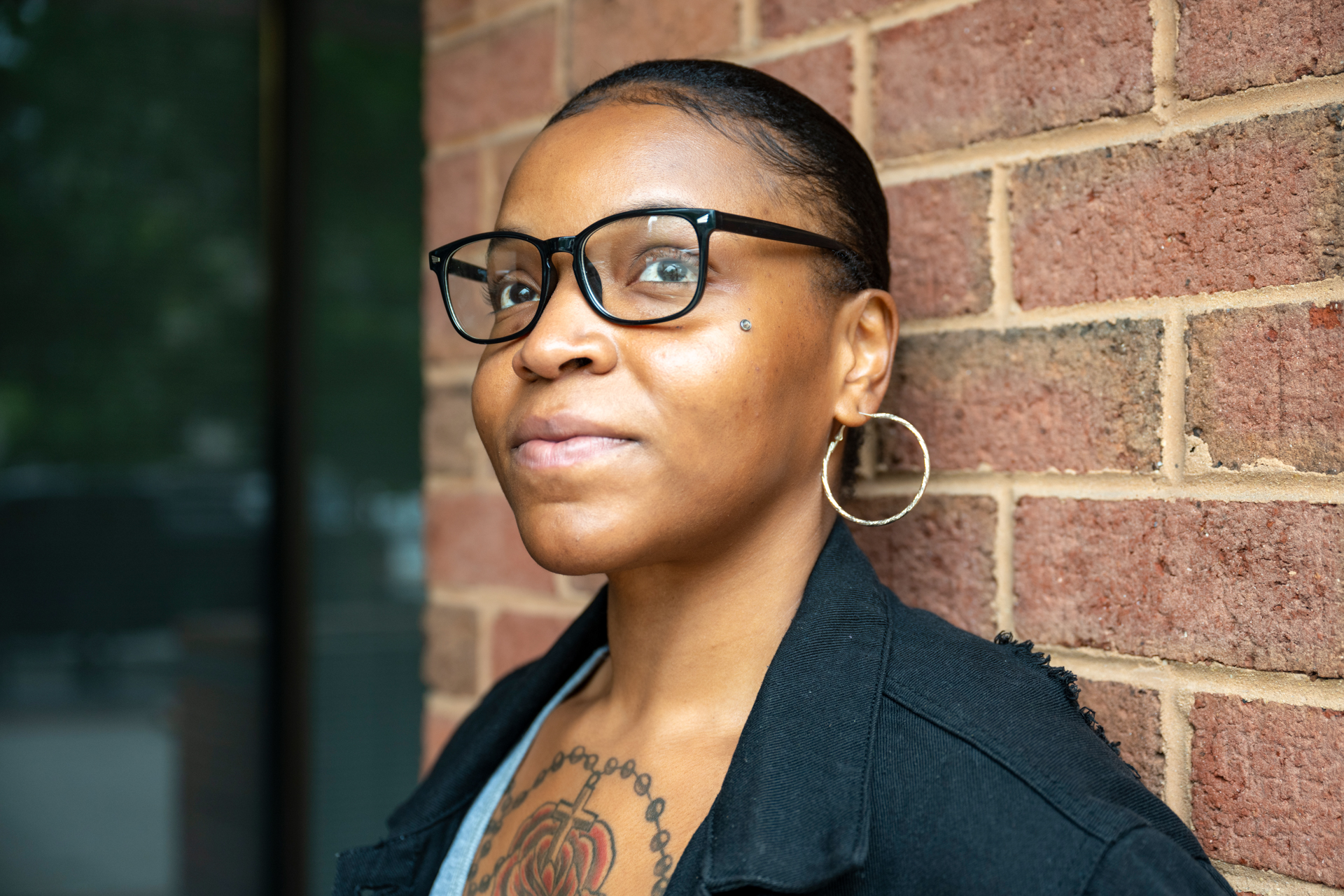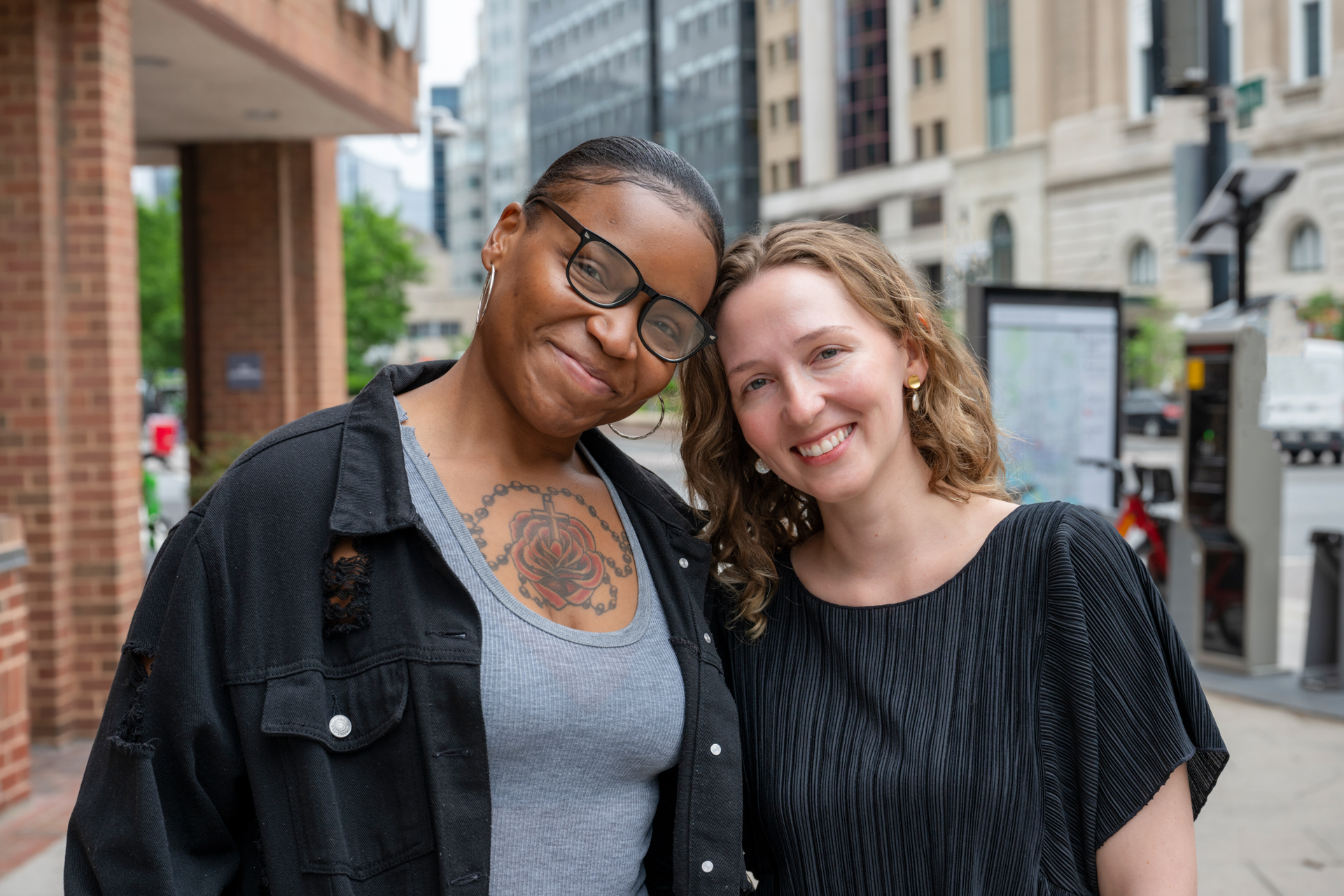
When she started having problems accessing her food assistance benefits in early 2023, Tamara Weatherly* felt like she was gearing up for yet another round of fights with the DC Department of Human Services (DHS). She had already been worn out by countless unhelpful phone calls, ignored emails, and contradictory information from the agency about her benefits over the years.
And the problem was much more serious than a bureaucratic headache: She was completely locked out of the Supplemental Nutrition Assistance Program (SNAP) benefits she needed to feed her family.
She spent a year persistently following up with DHS and trying to resolve the issue. Each time, she heard slightly different, unhelpful stories: “The funds should be there,” “There’s an issue with your card,” “You have to wait until Friday for the funds to be added,” or “It’s an internal problem with our system.” And on top of that, she said, the communication from the agency was often dismissive, even insulting.
“When you know you’ve done all you can, where does that leave you?” she said. “I took it very personally how I was being treated. I didn’t deserve that.”
As Ms. Weatherly went in circles with DHS, her stress and bills mounted. She worried about what losing access to her SNAP benefits long-term would mean for her sons, ages 8 and 13.
“If you’re going into debt but it’s for people you love, it’s like having to pick your poison,” she said. “These are kids they’re playing with, and that’s what made me mad. My kids weren’t going to starve on my watch.”
After spending a year with no SNAP benefits and with over $5,000 in debt on groceries alone, Ms. Weatherly reached out to Legal Aid DC for assistance.
“It takes a lot for me as a person to say I need help, but doing it by yourself will make you feel like you’re walking in a circle and not getting anywhere,” she said. “I needed someone to back me up.”

A Frustratingly Common Problem
Legal Aid Staff Attorney Haley Hoff took on Ms. Weatherly’s case in January 2024, and the two started working together to put the pressure on DHS.
“I would describe her as tenacious, and she was not someone who was going to take this lying down,” Haley said of Ms. Weatherly. “She had been trying to resolve this on her own for over a year and had been given the runaround. She was basically left hanging.”
Haley said cases like Ms. Weatherly’s are far too common. Benefit recipients, even those as organized and persistent as Ms. Weatherly, are often left discouraged and without answers from DHS.
“It's really death by a thousand pieces of paperwork,” Haley said. “It becomes a full-time job just trying to get the benefits they deserve.”
For Ms. Weatherly, it was comforting to learn that she wasn’t the only one experiencing these types of hurdles to access her benefits.
“It’s the ‘I hope they give up’ treatment, and it makes you not even want to try,” Ms. Weatherly said. “When Haley said I wasn’t the only one, it helped.”
Haley said it’s frustrating to see so many clients facing the same obstacles. In 2023, Legal Aid staff closed 743 public benefits cases, and nearly a quarter of them were SNAP cases.
“Ms. Weatherly is not the exception, she’s the rule,” Haley said. “The agency is really failing them.”
Pushing for Solutions
Haley initially hoped Legal Aid would be able to resolve the issue quickly through informal channels without the need for a time-consuming hearing process that could further delay Ms. Weatherly’s benefits. Public Benefits Specialist Rachel Clifton began reaching out directly to DHS about Ms. Weatherly’s case after confirming that she had a $0 balance on her Electronic Benefits Transfer (EBT) card. Haley then further escalated the case with the agency, following up with weekly emails and reaching out to DHS supervisors on Ms. Weatherly’s behalf.
After several more weeks without answers, Haley decided to take the next step and filed a hearing request with the DC Office of Administrative Hearings. With a hearing looming, DHS finally became more forthcoming and gave Ms. Weatherly and Haley a straight answer about her benefits: The funds had been loaded onto a card that Ms. Weatherly hadn’t had access to since 2017.
“To me, it is just an unresponsiveness on the part of DHS to address the issues that people have, which is especially frightening for food assistance recipients,” Haley said. “Unfortunately, it often does take that person bringing in an outside advocate to make things move forward.”
Finally, DHS resolved the error and told Ms. Weatherly that she could pick up a new card at a service center, where a supervisor would meet her to make sure it was working correctly. But Ms. Weatherly’s mistrust of DHS made her hesitate even then, wanting to avoid another confrontation and wasted trip.
“I didn’t want to believe that help was happening, that’s how bad it was,” she said.
With encouragement from Haley, Ms. Weatherly did go to the center, met with a supervisor, and picked up her new card in March 2024. On it was more than $8,000 in SNAP benefits she was owed, plus more than $3,000 in Temporary Assistance for Needy Families (TANF) benefits. She will continue to receive monthly SNAP benefits on her new card through September 2024.
“Throughout her case, Ms. Weatherly kept coming back to the fact that this was not for her, this was for her boys,” Haley said. “And she was not going to give up, because this was for her family.”
A little more than a month after getting a working card, Ms. Weatherly said she is starting to catch up on bills and refocus on saving for the future. She hopes to be able to move out of her mom’s apartment and into a safer neighborhood with more space for kids. Both boys are autistic, and one of Ms. Weatherly’s top priorities is creating a space where they can feel calm and comfortable.
“They were the reason I kept on fighting,” she said. “Everything I do, I do for them.”
*A pseudonym has been used in this story to protect Ms. Weatherly’s privacy




